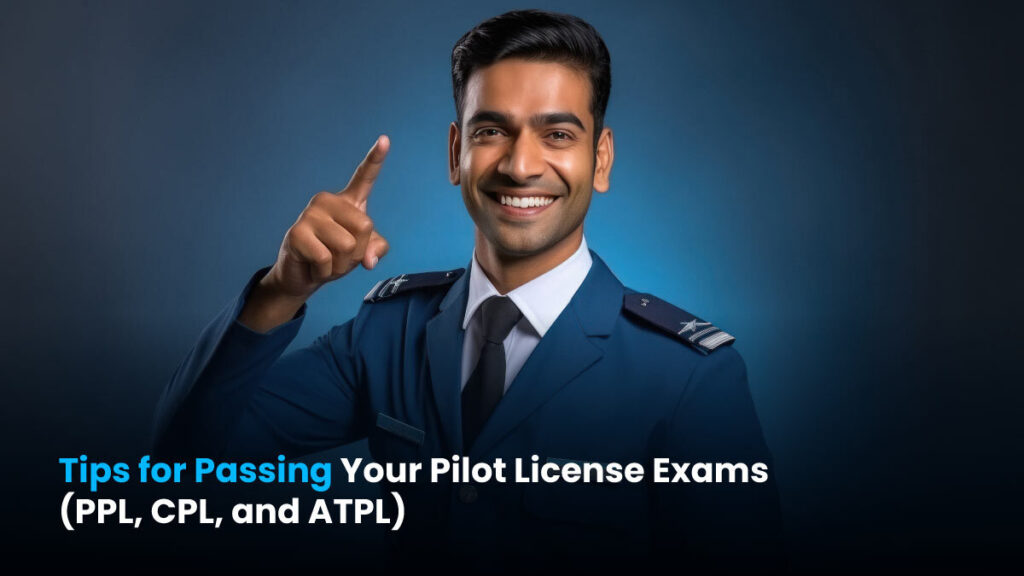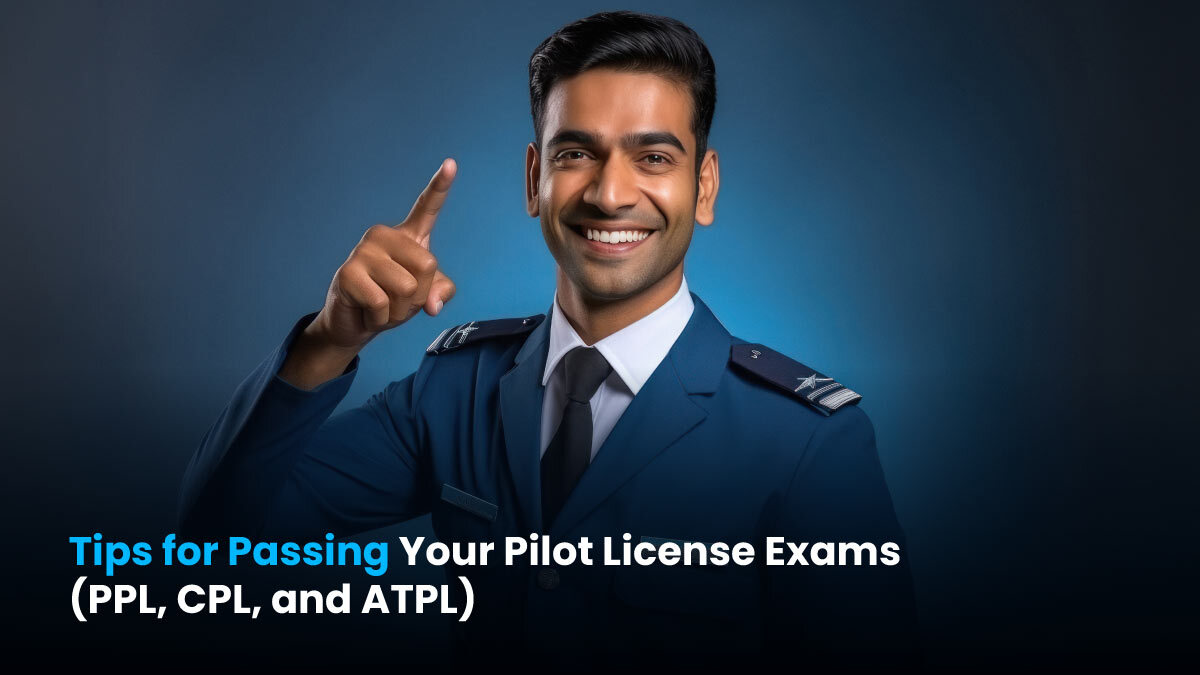
How far will you go to achieve the freedom of flight and claim your pilot’s license?
Whether you’re aiming for a Private Pilot License (PPL), Commercial Pilot License (CPL), or the Airline Transport Pilot License (ATPL), the journey to becoming a licensed pilot requires serious preparation. These exams can be demanding, and without proper planning, the pressure can build up, leading to unnecessary stress. By preparing well in advance and following the right strategies, you can ease the burden. This ensures success without the anxiety. Here are some effective tips to help you confidently pass your pilot license exams.
Understand the exam structure
Before you begin your study, familiarise yourself with the exam structure for each licence. The PPL, CPL, and ATPL exams differ greatly in content and complexity. The PPL examines fundamental flying principles, navigation, meteorology and regulations. The CPL expands on this expertise by going into flight planning, expert navigation, and operating procedures. The ATPL is the most thorough, covering a broad range of topics such as airline operations, complex systems, and aviation legislation. Understanding the structure will allow you to manage your study time better.
Create a study plan
A well-organised study schedule is essential for effective exam preparation. Break down the topics you need to cover for each licence and set precise study objectives for each session. Allocate additional time to subjects that you find difficult. For example, if aerodynamics is tough for you, devote extra hours to understanding it. To strengthen your learning, combine theoretical information with practical exercises.
Use high-quality study materials
Invest in high-quality study materials related to the PPL, CPL, and ATPL tests. Consider using textbooks, online courses, and study guides made exclusively for pilot licensing tests. Supplement your knowledge with official materials from aviation authorities like the FAA or EASA. Practice question banks can also be extremely useful because they imitate the format and types of questions you will find on the actual exams.
Join a Ground School
Enrolling in a ground school can greatly improve your grasp of complex topics. Ground schools offer structured learning environments, competent instructors, and useful resources. Interacting with lecturers and other students can also help to explain and reinforce your knowledge. Furthermore, many ground schools provide practice exams to help you get used to the exam format and scheduling.
Practice, Practice, Practice!
Practical application of academic knowledge is vital. Use flight simulators to reinforce what you’ve learnt. Simulators provide a safe environment for practising different flight scenarios, emergency procedures, and navigation techniques. Also, look for possibilities for dual training with a competent flying instructor. This hands-on experience will help you gain confidence and prepare for practical flight tests and theoretical exams.
Focus on Weak Areas
As you proceed through your education, learn and focus on your weak points. Take the time to examine things that you find difficult and seek assistance when necessary. Addressing your shortcomings head-on, whether through discussions with teachers, online forums, or study groups, can guarantee that you have a thorough understanding of all subjects covered in the tests.
Keep Up with Aviation Regulations
Aviation regulations play a significant role in pilot license exams, making it essential to stay current with the latest rules, procedures, and safety measures. Regularly review the regulations specific to your license type—whether PPL, CPL, or ATPL—and familiarise yourself with any updates in aviation law. Not only will this knowledge help you succeed in the exams, but it will also equip you to handle real-world flight operations.
Handle Exam Stress Effectively
Dealing with exam stress is a common challenge for pilots. To manage anxiety, practice relaxation techniques such as deep breathing, visualisation, or mindfulness. Prioritise getting enough sleep and maintaining a healthy lifestyle as you prepare for the exam. Staying well-rested and relaxed can enhance your focus and improve retention during study sessions and on exam day.
Take mock exams
Taking simulated exams is a great technique to determine your readiness for the actual pilot licence exams. Simulate exam situations to improve your time management and stress management abilities. Analyse your performance afterwards to identify areas for improvement. Mock tests can help you understand the types of questions you may encounter and alter your preparation tactics accordingly.
Stay Motivated
Finally, maintain motivation throughout your preparation. Remind yourself of your goals and why you want to become a certified pilot. Maintain a positive perspective by celebrating tiny accomplishments along the road. Surround yourself with helpful peers and mentors who will encourage you on your journey.
Successfully passing your pilot license examinations—whether for PPL, CPL, or ATPL—requires meticulous planning, unwavering focus, and a strong commitment to your goals. Familiarizing yourself with the exam structure, creating an effective study plan, and engaging in regular practice are key steps to building the confidence and knowledge necessary for success. Consider enrolling in Insight Aviation, the premier flight training school, where the IndiGo Cadet Pilot Programme offers comprehensive theoretical and practical knowledge. Embrace the challenges ahead and maintain your motivation, and you’ll be well on your way to achieving your dream of becoming a certified pilot. Good luck!
FAQs
Q. What subjects are covered in the CPL (Commercial Pilot License) exam?
A. The CPL exam covers flight planning, advanced navigation, meteorology, aviation regulations, and operational procedures.
Q. What should I focus on during practical flight tests for pilot licenses?
A. During practical flight tests, you should focus on safe and precise aircraft control, proper decision-making, and adherence to aviation procedures.
Q. How many attempts can I make for pilot license exams?
A. The number of attempts may vary by aviation authority, but most allow multiple tries, often with a limit on failures before additional training is required.
Q. How important is flight simulator practice for pilot exams?
A. Flight simulator practice is imperative as it helps reinforce theoretical knowledge, improve procedural skills, and prepare for real-world scenarios.

